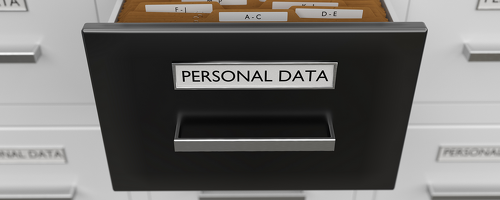
Published: 8/5/2024
Personally Identifiable Information, or (PII), is in the spotlight at the IRS, the Federal Trade Commission (FTC) and the Department of Labor (DOL), plus other federal agencies. Moving beyond the buzz and into understanding what it means for you relates directly to protecting your personal information from would-be thieves.
The Concept
PII is information that identifies you or relates specifically to you. This includes the obvious: name, address, phone number, and Social Security number. It also includes information that identifies your financial data, such as credit card information, emails, account numbers, user IDs, and passwords.
The point is that federal agencies are now focusing on identifying who legitimately has your PII and requiring that they have an active plan to protect it from hackers and thieves. In fact, anyone who has PII or other financial information must now have a Written Information Security Plan to outline how they plan to protect this information.
What you need to know
Your tax information is key PII. As you can imagine, your tax information is loaded with data that’s a target for thieves. So be aware of how you store this information. Also let vendors know you don’t want your Social Security number exposed on any mailed forms like W-2s and 1099s.
Know who has your PII. Be aware who has your personal data and be deliberate about deciding who really needs it. Close unused accounts and ask them to delete their records as soon as possible. Remember, this is not just your bank or tax professional. It includes any vender that stores your credit card number for future transactions or anyone you autopay with a link to your bank account.
Be watchful. As part of the federal requirements, any suspected security breach incident is to be reported to you on a timely basis. But despite these requirements, this does not always happen. So be diligent, and take advantage of the free annual credit report from each of the major credit reporting agencies to double check for any suspicious activity.
Your information is secure. As your tax professional, we protect your personal information and take this task seriously. While no one can guarantee something bad won’t happen (just look at recent cases of data theft at United Health Care and AT&T), it is our obligation to identify personally identifiable information, have a plan to protect it, and be constantly vigilant.
Wash sales explained
If the wash sale rule applies to your transaction, you cannot immediately report a loss you take when selling a security. Per the IRS:
A wash sale occurs when you sell or trade stock or securities at a loss and within 30 days before or after the sale you:
Why the rule?
Many investors were selling stock they liked simply to book the loss for tax reasons. They then turned around and immediately re-purchased shares of the same company or mutual fund. If done repeatedly, shareholders could constantly be booking short-term losses on a desired company while still owning the shares in a chosen company’s stock indefinitely. Clever shareholders would even purchase the replacement shares prior to selling other shares in the same company to book the loss.
Some ideas
How does one take action to ensure the wash sales rule works to your advantage?
If your loss is ever disallowed because of the wash sales rule, you can add the disallowed loss on to the cost of the new security. When the security is eventually sold in the future, the previously-forfeited loss will be part of the calculation of future gain or loss. This also includes the original stock’s holding period to help define the transaction as a short-term or long-term sale.
Acquire proactive guidance for business growth and profitability. Our expertise guides you through financial changes, helps you seize growth opportunities, refines your focus on future goals, and provides insights to enhance your decision-making.